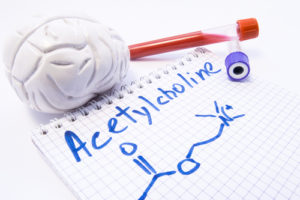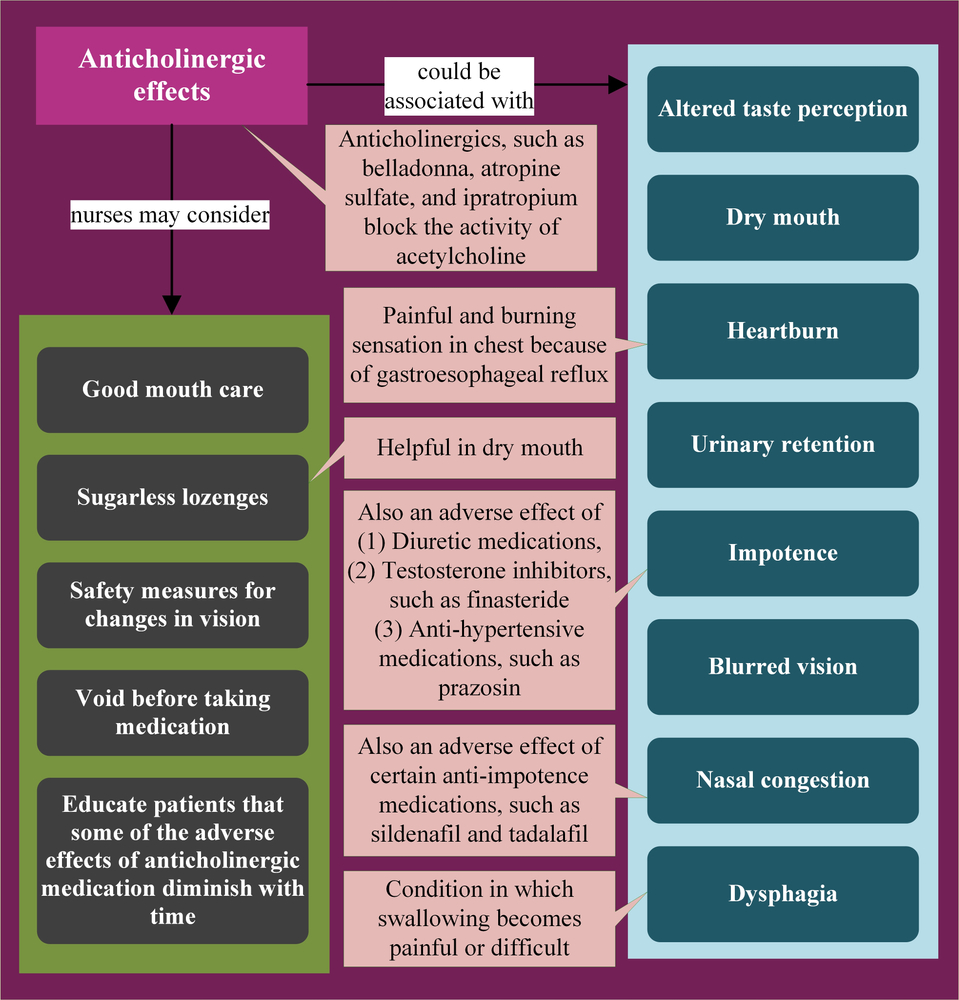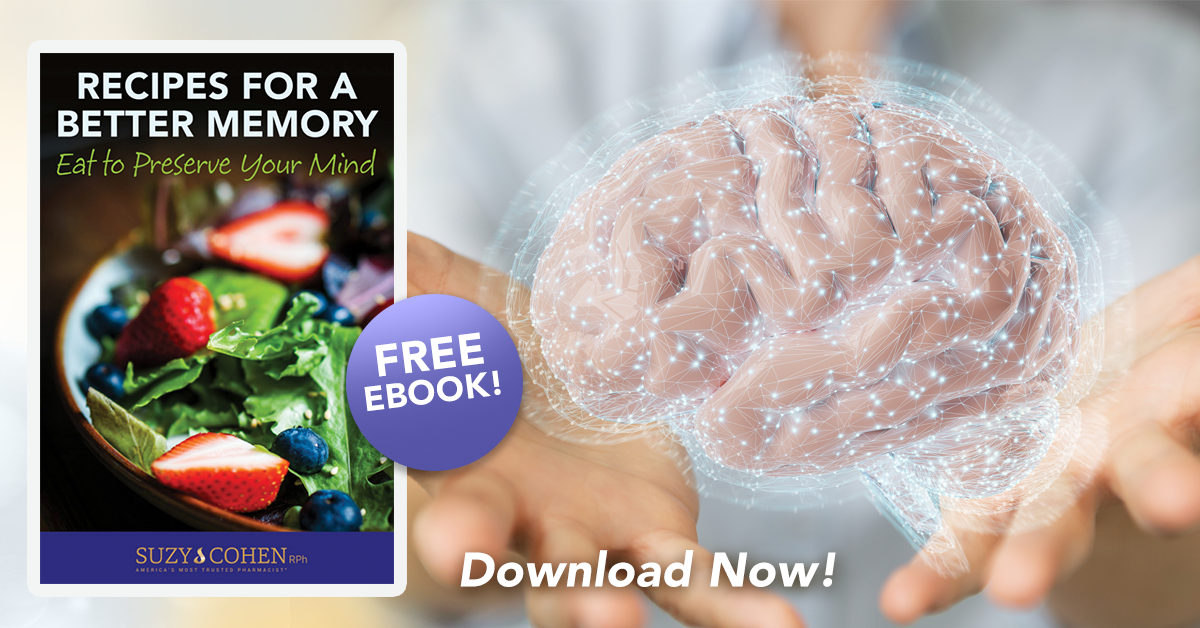What's On This Page?
ToggleThis article is about brain health and memory. Before I get to that, let’s talk about what’s been in the news. Several dozen people have died while on vacation at different Caribbean islands including the Dominican Republic. While not totally conclusive for everyone, post-mortem examination suggests organophosphate (insecticide or pesticide) poisoning was implicated.
The toxic and fatal effects occur due to an imbalance in the cholinergic pathways of the human body. When I say “cholinergic” I am referring to acetylcholine production and utilization.
With pesticide or insecticide exposure, there is a dangerous accumulation of acetylcholine in the body leading to excessive parasympathetic stimulations and terrible symptoms that include paralysis, salivation or foaming at the mouth, diarrhea, cramps and muscular weakness, as well as other symptoms.
All About Acetylcholine
To be clear, the neurotransmitter acetylcholine is a beneficial, memory-enhancing and life-giving compound in the body. It is a natural compound that your nerve cells use to communicate with one another. You can’t think or live without it. But like all good things, poisoning the body with substances that spike acetylcholine levels can be fatal.

Let’s talk about acetylcholine some more because it is the neurotransmitter that many good medications target in the opposite way. By that I mean some drugs lower levels of acetylcholine as part of their side effect profile. They may do something helpful like ease depression, but in doing so, they have the side effect of reducing acetylcholine a little bit. Reducing acetylcholine function causes memory problems due to the “anticholinergic” side effect.
It is that side effect that may cause you to get diagnosed with a memory disorder you don’t really have. For people with new onset memory concerns, the first thing I have them do is look in their medicine cabinet! What are you taking that could be causing this?
The most important thing I have to say today is that if you raise acetylcholine in a person who has low levels, you may be able to improve recall and memory function. Whereas, if you lower acetylcholine in a person who has low (or normal) levels, you can harm the pathway and therefore damage memory. And YES, it has been clinically proven that people with low acetylcholine suffer with cognitive problems.
If a drug raises acetylcholine it is termed a “cholinergic” drug. Medications that slightly increase levels are good for the brain and memory system. You want to preserve the body’s natural acetylcholine levels in patients with Alzheimer’s for example. Drugs that seek to do this usually work by blocking an enzyme that would otherwise degrade the acetylcholine, so it hangs around longer. Pills that seek to do this include donepezil, rivastigmine, and galantamine all used for Alzheimer’s, Parkinson’s or dementia. For those of you who want to look up more information on this topic, you can google, “acetylcholinesterase inhibitors” and learn more.

How does the brain and the body respond when you take an anticholinergic drug?
This category of medications are powerful, only if temporary for people with dementia and cognitive decline. The medications have absolutely nothing to do with the dangerous organophosphates I mentioned above other than the simple fact they both work on the cholinergic system of the body, but they impact it in totally different ways. Excellent glaucoma medications work on the cholinergic system within the eye tissue to relieve intraocular pressure, so again my point is, a cholinergic drug is useful, where as a cholinergic poisoning is fatal. This is an important distinction that I would like to emphasize.
See the graphic above for the side effects of anticholinergic drugs, I downloaded that from a graphic site. The artist who did that rendering did not include memory disorders, so please realize that cognitive impairment is not even listed and it should be!
What are the anticholinergic drugs?

You know these medications, they are blockbusters… drugs like diphenhydramine and chlorpheniramine for allergies, scopolamine patches for dizziness, oxybutynin or tolteridine for bladder problems, many older antidepressants, ipratropium inhalers for breathing, dicyclomine for IBS and others. The others include dozens of medications so here are the categories of anticholinergic medications: Tricyclic antidepressants (TCAs like amitriptyline), antihistamines, sedative and hypnotics for anxiety and sleep, muscle relaxants and many painkillers.
If you take these drugs, you should consider brewing a batch of my Memory Mint Hibiscus Tea. If you take antihistamines, take a few more minutes to read about natural FOODS that act like antihistamines that do not cause the severe constipation and drying anticholinergic side effe
cts of drugs. Here’s the LINK TO MY ARTICLE. And on the same topic, I also wrote this article, The 5 Best Natural Antihistamines. One of them you can grow in your yard!!!
How do you respond to anticholinergic drugs that reduce acetylcholine production or utilization?
Anticholinergic drugs harm our memory pathways.
Think of it with me, if you raise acetylcholine (for example with Namenda, a famous Alzheimer’s medication) then you improve levels of acetylcholine. But if you take an anticholinergic drug for a long time (for example Benadryl for allergies), you suppress production of acetylcholine. A big number of prescription and over-the-counter medications can interfere with acetylcholine.
Does this for a fact cause loss of memory? There isn’t complete clarity, however there are some interesting studies that correlate one’s risk of dementia with the anticholinergic drug usage. This makes common sense to you now that you understand the connection of acetylcholine to memory.
There was a JAMA study published in 2015, entitled, “Cumulative Use of Strong Anticholinergics and Incident Dementia” that found an association. They evaluated data from hundreds of participants over 10 years to see if they went on to develop dementia or Alzheimer’s disease. Essentially, they found that long term use of anticholinergic drugs is bad for the brain! There was another Harvard ARTICLE about anticholinergics such as Benadryl in case you’re interested in that blog information. If you know anyone who takes these kinds of medications, let them know that their cognitive decline and memory loss may be related.
Genetics Impact Your Memory
They may be able to offset problems related to their medication by simply taking supplements which raise acetylcholine (ie lecithin, choline, phosphatidylcholine and others). For people like myself who have a genetic SNP in the PEMT pathway (that prevents me from making enough of my own natural phosphatidylcholine) this dietary supplement (phosphatidylcholine) as well as others (including my own Memory Script capsules) nourishes my nerve cells and gives me mental security in the quest to maintain healthy brain power. I think the information on THIS PAGE can be helpful for some people seeking better brain structure and function.*
If you’re worried about dementia, or you have a SNP in one of your neurotransmitter pathways associated with cognition, I suggest you read some of my other articles, see below for links, or download my ebook here.
How Exercise Improves Memory and Enhances Mood
Forgetful? Try these Natural Memory Boosters
If you wish you had more brain power, take a look at the medications you’re taking and see if you’re taking an anticholinergic drug. To find out if you’re taking a drug with strong anticholinergic side effects, please look at THIS LIST first, and if you have more questions, you can google, and to be 100% sure seek professional assistance by asking your local pharmacist.
If you would like to see my own special formula for memory, CLICK HERE.

Suzy Cohen, has been a licensed pharmacist for over 30 years and believes the best approach to chronic illness is a combination of natural medicine and conventional. She founded her own dietary supplement company specializing in custom-formulas, some of which have patents. With a special focus on functional medicine, thyroid health and drug nutrient depletion, Suzy is the author of several related books including Thyroid Healthy, Drug Muggers, Diabetes Without Drugs, and a nationally syndicated column.



